The difference IMO? If they took a "turn for the worse" Paris is at LEAST 10 hrs away, If a flight was available. The game...much closer and could possibly make it to the hospital on time.
I Refused to Sacrifice My Dream Honeymoon for Their Crisis
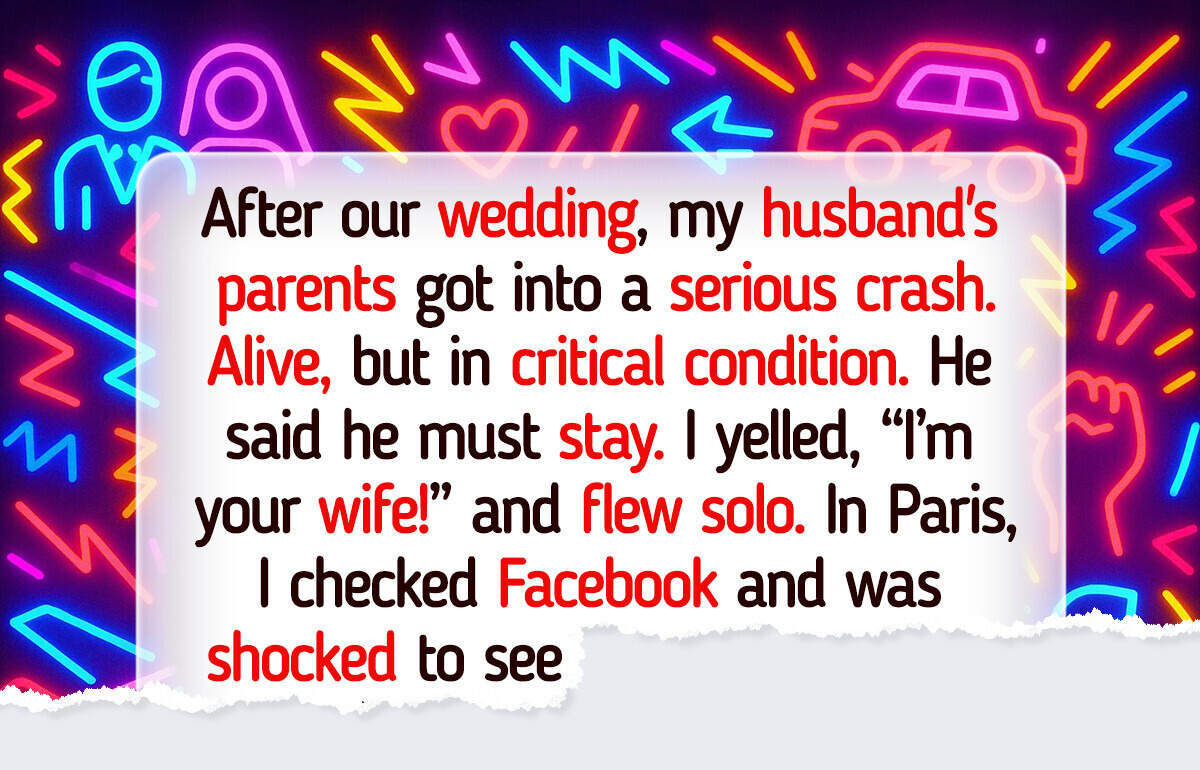
Today, we’re addressing a letter from a woman named Lily who finds herself in an emotionally complex situation. What was meant to be a blissful honeymoon in Paris quickly transformed into a painful dilemma when her in-laws were involved in a serious accident after her wedding. The situation has created division among family members, leaving Lily questioning her decision to travel alone while her husband stayed behind. As you read Lily’s letter, consider how unexpected crises can test newly formed marital bonds and the difficult choices we sometimes face between family obligations and personal dreams.
This is Lily’s letter:

I (28F) and my husband Jake (30M) got married last month after dating for 4 years. We planned a dream honeymoon to Paris — two weeks of romance, sightseeing, and celebrating our new marriage. We’d been saving for this trip for over a year, making careful plans for everything from fancy dinners at rooftop restaurants overlooking the Eiffel Tower to day trips to Versailles and wine tasting in Champagne.
The wedding was beautiful. Everything went perfectly — the venue looked magical, the food was amazing, and even my normally critical mother-in-law Clara seemed genuinely happy for us. We were supposed to leave for our honeymoon four days after the wedding. Our bags were packed, passports ready.
Then everything changed. After our wedding, my husband’s parents got into a serious crash. Alive, but in critical condition. When we got the call at 3AM, Jake rushed to the hospital while I stayed behind to call family members.
For the next 48 hours, we barely left the hospital. The doctors said the recovery would be long and difficult — weeks in the hospital followed by months of rehabilitation. Jake was devastated, understandably. His parents have always been extremely close to him — they talk daily and live only 20 minutes away from us.
The day before our scheduled flight, I gently brought up the honeymoon. I suggested we could postpone it for a month or two, but the airline would charge hefty rebooking fees and we’d lose our non-refundable hotel deposits (about $3,000 total). Jake looked at me like I was speaking an alien language.
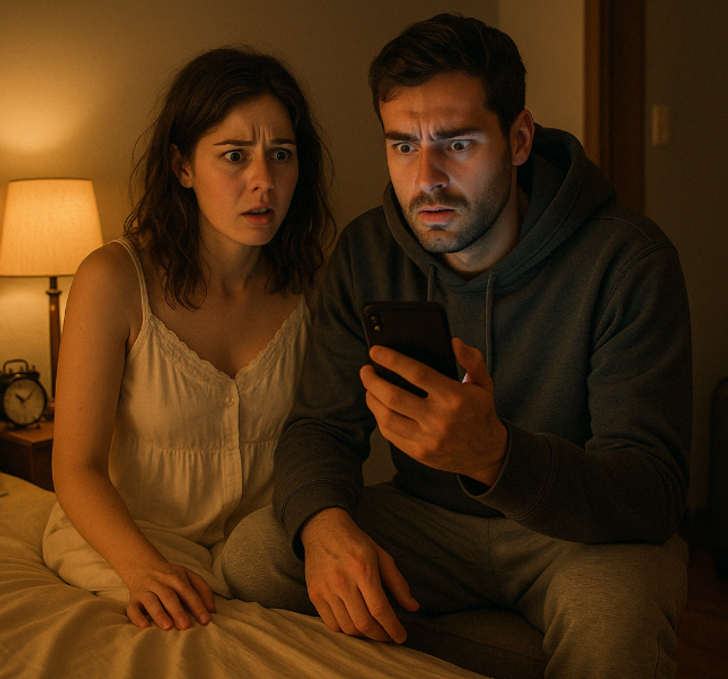
He said he must stay. “I can’t leave them,” he says. I tried to explain that his parents were now stable, his sister was already flying in to help, and that we could come back after our honeymoon to support them through recovery. But he refused to consider it.
“How can you expect me to go sip champagne in Paris while they’re fighting for their lives, Emily?” he said, his voice rising.
“They’re not fighting for their lives anymore — the doctors said they’re stable now,” I argued. “And this is our honeymoon, Jake. We’ve been planning it forever.”
The argument escalated. I yelled, “I’m your wife!” and flew solo. I told him I was going regardless — we had worked too hard and saved too much to just throw it all away. His sister Lisa called me selfish and heartless. Even my own mother suggested I reconsider.
But I went anyway. The first few days were honestly miserable. I sat alone at restaurants meant for couples, felt awkward on the romantic river cruise I’d booked, and cried myself to sleep in our beautiful hotel suite. Jake barely responded to my texts, just sending brief updates about his parents’ condition.
In Paris, I checked Facebook and was shocked to see pictures of Jake at a baseball game with his college buddies. THREE DAYS after I left! His caption read, “Needed a mental health break — thanks for dragging me out, guys.” When I called him furious, he said his sister had convinced him to take a few hours off from the hospital since his parents were sleeping most of the day anyway.
I’m now halfway through what was supposed to be our dream honeymoon, alone in the most romantic city in the world, while my husband of two weeks is apparently well enough to attend baseball games but not to join his wife in Paris.
Now everyone in our families is taking sides. His relatives think I’m a monster for abandoning my husband during a family crisis. My friends say he’s being manipulative and controlling by using his parents’ accident to get out of the honeymoon he may have been nervous about anyway.
Am I really the villain here for expecting my husband to honor our honeymoon plans when his parents were out of immediate danger? Or is he the bad guy for going to a baseball game but refusing to join me in Paris?
When Dreams and Duties Collide: A Response to Lily
Lily, your letter touched our editorial team deeply. What should have been one of the happiest times in your life has instead become fraught with conflict, disappointment, and family tension. The honeymoon period—both literal and figurative—has been disrupted by circumstances beyond anyone’s control, leaving you alone in Paris while your two-week-old marriage faces its first major test.
The Heart of the Matter
Let’s address what we see as the core issue: neither you nor Jake is truly the villain in this scenario. You both responded to an unexpected crisis in different but understandable ways. Your desire to salvage a meticulously planned and expensive honeymoon doesn’t make you heartless. Similarly, Jake’s instinct to remain close to his seriously injured parents doesn’t make him manipulative. What’s concerning is how quickly this situation devolved into a “sides” issue rather than being approached as a challenge for you to navigate together as a new married couple.
The Baseball Game Factor
The baseball game revelation certainly complicates matters. We understand why seeing those photos would feel like a betrayal when your honeymoon invitation was declined. However, we’d encourage you to consider the difference between a few hours at a local game with friends (likely an attempt by Jake’s support system to prevent burnout) versus an international two-week trip. Mental health breaks during family crises are necessary, but the timing and circumstances of his outing were unfortunately hurtful given your situation abroad.
Communication Breakdown
What strikes us most about your letter is the breakdown in communication. The transition from “us against the problem” to “you versus me” happened remarkably quickly in your young marriage. Rather than developing a compromise together (perhaps a shortened trip, or Jake joining you for just part of the honeymoon), the situation escalated to ultimatums. This pattern, if continued, could create lasting damage to your relationship. The fact that Jake is now barely responding to your texts while you cry yourself to sleep in Paris suggests you’re both hurting deeply but separately—exactly the opposite of what marriage is meant to foster.
Moving Forward Together
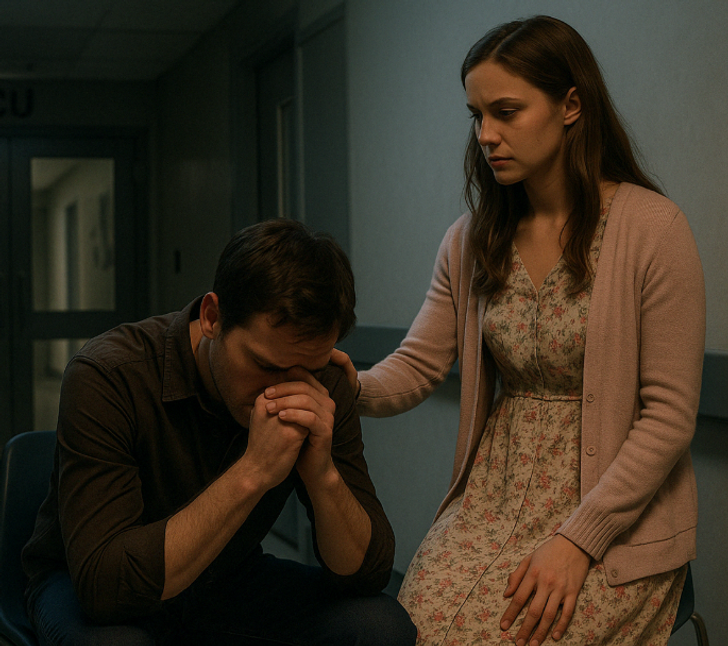
Looking ahead, we believe your focus should be on rebuilding the “team” aspect of your marriage. The accident wasn’t anyone’s fault, and how you both recover from this first hurdle will set important precedents for your marriage. When you return home, a calm, non-accusatory conversation about how you both felt abandoned by the other might help heal this rift. Consider seeking guidance from a neutral third party, like a marriage counselor, who can help you develop better crisis-navigation skills as a couple.
Lily, the remainder of your time in Paris and the weeks that follow will be challenging. The honeymoon you envisioned is unfortunately not the experience you’re having. However, real marriages are built not in the picture-perfect moments, but in how couples handle unexpected difficulties. We believe this situation can ultimately strengthen your bond if you both commit to understanding each other’s perspectives and making decisions as partners moving forward. Your marriage doesn’t need to be defined by this rocky start, but rather by how you grow through it together.
A completely unexpected wedding disaster occurred when a bride cut ties with her bridesmaids, declaring she never wanted to see them again, after their insensitive actions turned her special day into a nightmare. Discover what happened here.
Comments
Related Reads
12 People Share Shocking Secrets That Caught Them Off Guard

My Twin and I Took a DNA Test for Fun, Only to Discover a Shocking Family Secret

“1,000-lb Sisters” Star Lost Over 400 Pounds, Astonishing Everyone With Her Remarkable Transformation

12 Rarely Seen Celebrity Kids Many of Us Had No Idea Existed

11 Stories of Nice Guys Who Got Way Too Creepy

10+ Wardrobe Choices You Don’t Realize Are Ruining Your Look

14 Historical Figures We Know Only Through Art — and What They Actually Looked Like

10 Common Fashion Mistakes That Secretly Age You

I Found Out a Secret About My Family and Refused to Split My Inheritance
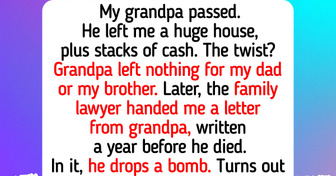
15 People with Unique Body Traits That Caught Us Off Guard

10+ Kids Who Thought They Could Fool Their Parents, But Suddenly Got Busted
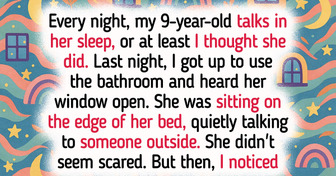
“She Looks 20 Years Younger!” Woman, 49, Leaves People Speechless After Revealing Surgery Results




